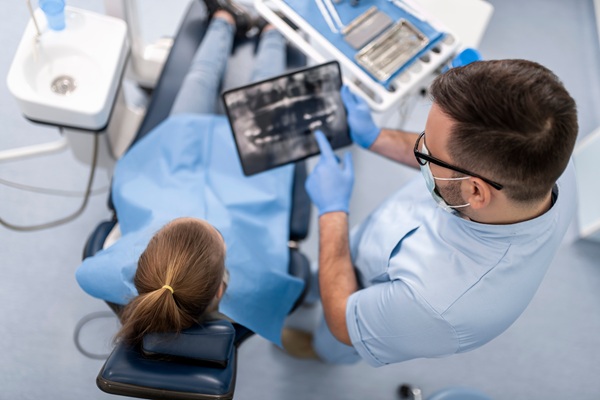Understanding Wisdom Teeth Extraction Process
may be necessary to achieve better dental health. Research shows that the third molars often emerge after all your teeth have erupted. Wisdom teeth may not be a problem at all. But in some cases, the dentist will recommend their removal. Here are the details on how a wisdom teeth extraction happens.
The consultation
This visit will involve assessing the patient’s wisdom teeth. Reviewing the patient’s medical and dental records is crucial. A physical dental exam and a dental X-ray will help determine the condition of these teeth. The dentist will recommend wisdom teeth extraction if the teeth are causing problems. Some patients are all right with local anesthesia. Others need sedation or general anesthesia to help with their dental fear.
The process
Removing the third molars is necessary if these teeth are impacted or partially impacted. The process will be more complicated than merely pulling a tooth from its socket. The dentist will numb the area first. The wisdom teeth extraction will begin once the area is numb.
Cutting through the gum tissue will expose the bone and the tooth. The dentist will take out the bone that blocks the dental root. Dividing the tooth into smaller sections will make it easier to remove it. Cleaning out the socket will follow.
The dentist will repeat the process on the other impacted wisdom teeth. The socket must be clear of debris before stitching it up. This will encourage healing. It is not necessary in some cases. Placing a sterile gauze over the extraction site will help control the bleeding. It will also encourage the formation of a blood clot.
After the wisdom teeth extraction
This type of oral surgery may need general anesthesia or sedation anesthesia in some cases. For these patients, staying in a recovery room will be necessary before going home. This will allow the effects of the anesthesia to fade until the doctor releases the patient. Someone will take the patient home. Patients who have local anesthesia can go home right after the procedure. Following the dentist’s instructions while healing is necessary for proper recovery:
- Bruising may last for days before it resolves. Cheek swelling will pass in about two to three days. An ice pack can help with the pain and swelling.
- Minor bleeding is natural. Avoid spitting or using a straw for drinking. This will prevent the clot from dislodging.
- Some patients may need stitches. These individuals must return after wisdom teeth extraction so that the dentist can remove them.
- Managing pain is possible by taking over-the-counter pain relievers. The dentist may also prescribe pain medications that the patient needs to take on time.
- Clean the mouth, but do not brush, spit, or rinse the mouth. Using a mouthwash is not advisable during the first day of healing. Brushing will start again the next day. Gentle brushing is important. Rinse the mouth with a warm salt solution every couple of hours after meals for a week.
- Rest for at least a week. Strenuous activities might dislodge the blood clot.
- A soft diet is necessary. This will help the areas heal better.
- Drink plenty of water to help the area heal. Refrain from drinking alcoholic or hot beverages.
- Consuming tobacco is not ideal after wisdom teeth extraction. This substance prevents proper blood oxygenation and circulation. It will only delay healing.
Knowing what wisdom teeth extraction is all about can help you prepare for it
Some wisdom teeth harm the mouth as it develops. That is why the dentist will recommend wisdom teeth extraction. This will relieve the pain and swelling in that section of the dental arch. Working with your dentist can help you heal faster and enjoy your pain-free dental health right away.
Request an appointment here: https://www.drjstearns.com or call Platte Valley Oral Surgery at (303) 997-0220 for an appointment in our Denver office.
Recent Posts
Oral surgery may be necessary when common dental procedures or appliances cannot solve your dental complication. In order to help you understand when a dental professional recommends oral surgery, we have outlined some of the most common reasons for needing this type of dental care.The oral surgeon will recommend an extraction if a tooth is…
Sometimes, tooth extractions may be necessary to improve your oral health. This procedure is a type of oral surgery. That is why getting this procedure from an experienced dental professional is ideal. Here are the details about the importance of getting tooth extractions from an oral surgeon.An oral surgeon will perform a complete assessment of…
TMJ disorders cause chronic pain and discomfort. Fortunately, an oral surgeon may perform maxillofacial surgery to treat these disorders, relieving pain and restoring mobility to the jaw. These procedures can also enhance the jaw's appearance. Find lasting comfort and improved jaw function with the help of maxillofacial surgery from an oral surgeon.These jaw disorders are…
Corrective jaw surgery is often recommended by dentists and oral surgeons to address functional problems, such as difficulty breathing or chewing, and chronic discomfort caused by a misaligned jaw or bruxism. This review discusses several important questions to ask your oral surgeon during a corrective jaw surgery consultation.Corrective jaw surgery has helped many patients feel…


